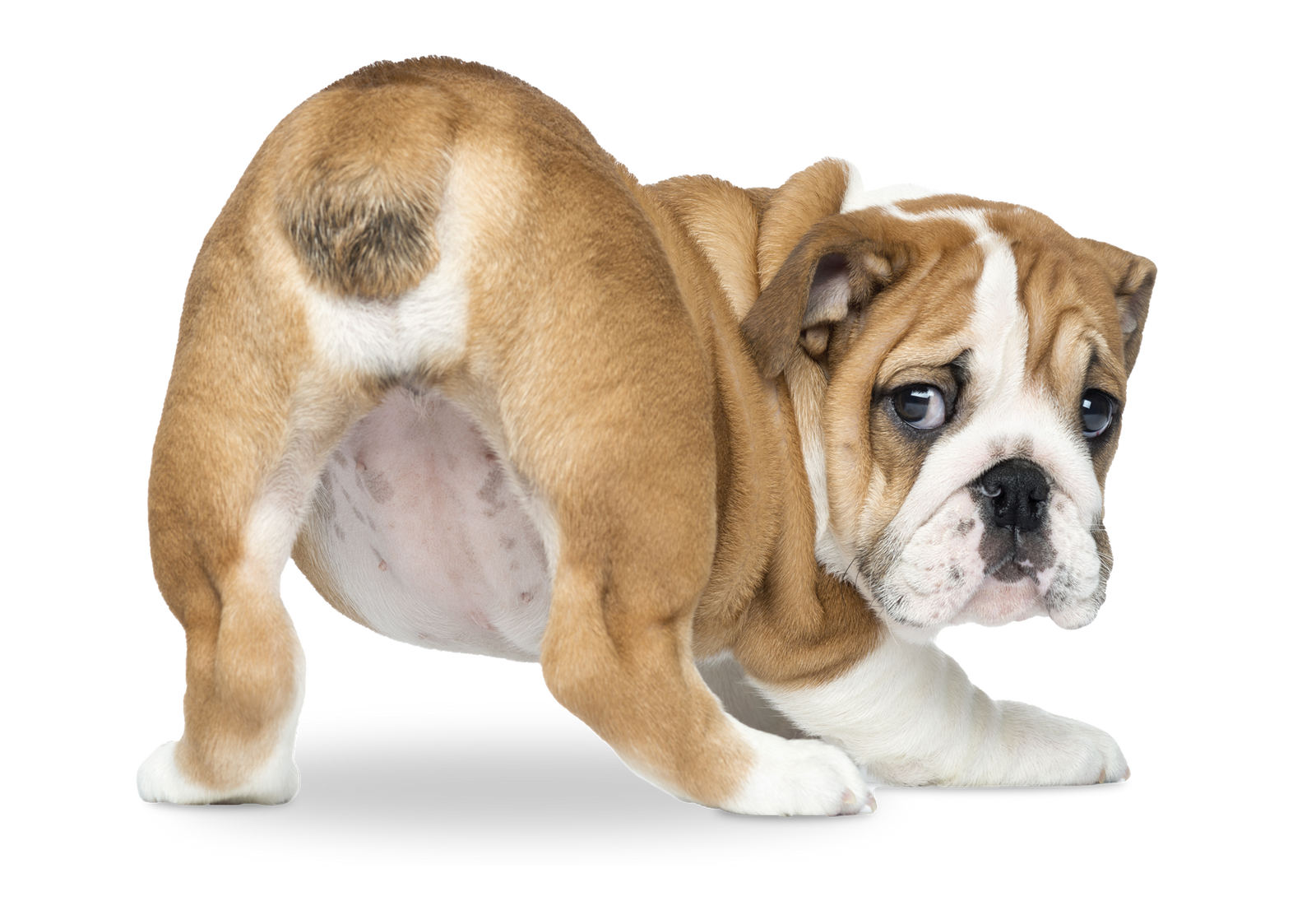Anal Gland Removal (Anal Sacculectomy) For Dogs
WRITTEN BY DR. RHAYSA FELICIANO, DVM

Does your dog struggle with scooting, excessive licking under the tail, and other signs of anal gland distress? You might be at your wit’s end! If you’ve shelled out hundreds to thousands of dollars for anal gland expressions at your vet, the issue might feel even more urgent––and you might be desperate for a permanent solution.
Can anal glands be removed if your dog has anal gland issues? Should they be removed as a long-term solution, or only as a last resort? Anal gland removal isn’t something a veterinarian will recommend right off the bat, but it’s certainly a viable option if your canine companion has chronic issues.
Understanding Anal Glands in Dogs
Anal glands, though small and often overlooked, play a significant role in your dog's overall health and comfort. These tiny sacs located on either side of the dog's anus secrete a foul-smelling substance that is used for scent marking and communication with other dogs. While they may seem insignificant, issues with anal glands can lead to discomfort and health problems for your furry friend.
Explanation of what anal glands are and their function
Anal glands, also known as anal sacs, are small sacs located just inside the anus of dogs. These glands produce a pungent, oily substance that is used by dogs for territorial marking and identification. When a dog defecates, a small amount of this substance is released onto the feces, leaving a unique scent marker.
Common anal gland issues in dogs
Despite their important function, anal glands can sometimes become problematic. The most common issue is thickening of the contents of the sac leading to impaction, where the glands become blocked and unable to empty properly. This can lead to discomfort, pain, and even infection for your dog. Other issues include abscesses, inflammation, and tumors within the anal gland tissue.
Symptoms of Anal Gland Problems in Dogs
Recognizing the signs of anal gland problems in your dog is crucial for timely intervention and treatment. Some common symptoms include:
- Scooting: Your dog may drag their bottom along the ground (also called ‘scooting’) in an attempt to relieve itching and discomfort.
- Excessive licking or biting: Dogs may excessively lick or bite at their rear end due to irritation from the blocked glands.
- Foul odor: A strong, unpleasant odor may emanate from your dog's rear end, indicating an issue with the anal glands.
- Swelling or redness: Visible swelling or redness around the anus may indicate inflammation or infection of the anal glands.
If you notice any of these symptoms in your dog, it's essential to consult your veterinarian for proper diagnosis and treatment.
What is Dog Anal Gland Removal Surgery?
Dog anus gland removal or dog anal gland removal–medically known as anal sacculectomy–is a surgical procedure aimed at removing the anal glands entirely. During the procedure, the veterinarian removes the anal sacs to address existing issues and prevent future complications associated with the glands.
While anal gland removal for dogs may seem drastic, it can be a necessary solution for persistent or severe anal gland issues that do not respond to other treatments.
When is Anal Sacculectomy Surgery Necessary?
Anal sacculectomy surgery is typically considered when other methods of treatment have failed to resolve the dog's anal gland issues or if the problems recur frequently. Your veterinarian may recommend anal gland removal for dogs if your pet experiences:
- Chronic anal gland impactions or infections.
- Recurring abscesses or inflammation of the anal glands.
- Tumors or other abnormalities within the anal gland tissue that pose a risk to your dog's health.
If these cases sound familiar, the question “can anal glands be removed?” is probably a question best answered by your veterinarian.
Can dogs’ anal glands be removed if they’ve only had a few symptoms? When considering anal gland removal dogs must meet a certain criteria in terms of health history and symptoms. If you think your dog might be a candidate, having a dialogue with your veterinarian can help you feel more confident in your decision.

Tips For Preventing Anal Gland Surgery & Complications
While some dogs may require dog anus gland removal surgery due to persistent issues, there are steps you can take to minimize the risk of anal gland problems and the need for surgery:
Dietary adjustments
A high-fiber diet can promote firmer stools, which may help naturally express the anal glands during bowel movements.
Regular expression
Some dogs may benefit from regular manual expression of the anal glands by a trained professional. However, frequent manual expressions can cause permanent damage and can be both expensive and uncomfortable for your pet. If your dog has frequent anal gland issues, it might be time to discuss other treatments (including anal gland removal) with your veterinarian.
If your dog does not have anal gland health issues, having them routinely expressed can cause more harm than good long term.
Weight management
Maintaining a healthy weight can help prevent excessive pressure on the anal glands and reduce the risk of impaction.
By incorporating these preventive measures into your dog's care routine, you can help minimize the likelihood of anal gland issues requiring surgical intervention.
Manage allergies
Dogs with underlying food or environmental allergies may be predisposed to anal gland issues. This susceptibility could be attributed to inflammation of the anal sacs leading to a narrowed duct or an increased production of anal gland secretions. Both factors contribute to inadequate emptying of the anal glands. This often leads to chronic anal gland health issues in allergy patients.
Dog Anal Gland Removal Pros and Cons
As with any medical procedure, discuss dog gland removal pros and cons with your veterinarian before making a decision. Here's a brief overview of how dog anus gland removal can affect your canine:
Pros
- Resolution of chronic issues: For dogs with persistent anal gland problems, removal surgery can provide long-term relief and improve their quality of life.
- Prevention of future complications: Removing the anal glands eliminates the risk of future impactions, infections, and other gland-related issues.
- Improved comfort: Dogs that undergo anal gland removal surgery often experience relief from discomfort and pain associated with gland problems.
Cons
- Surgical risks: As with any surgery, there are inherent risks associated with anesthesia and the surgical procedure itself.
- Potential side effects: Some dogs may experience temporary or permanent changes in bowel habits or fecal incontinence after anal gland removal.
- Loss of natural scent marking: Removing the anal glands eliminates a natural means of communication and scent marking for dogs.
Before opting for anal gland removal surgery, it's essential to discuss the potential risks and benefits with your veterinarian to make an informed decision.

Long-term Dog Anal Gland Management
While dog anal gland removal surgery may be necessary in some cases, long-term management of anal gland health is essential for all dogs. Here are some tips for ongoing care:
Regular veterinary check-ups
Scheduling routine veterinary visits will help you and your veterinarian monitor your dog's anal gland health, help address any concerns, and get ahead of potential issues.
Maintain a healthy diet
Provide a balanced diet rich in fiber to promote regular bowel movements and prevent constipation. A healthy, fiber-rich diet can also help dogs express anal glands naturally.
VET TIP: Did you know? Pumpkin is a superfood that offers numerous benefits for dogs. It provides essential components like fiber, prebiotics, digestive enzymes, and a plethora of vitamins, including Vitamin C, Vitamin A, and more.
Manage inflammation
In addition to dietary enhancements, keeping the rear-end soothed from the outside can also help prevent further irritation caused by scooting on the carpet or excessive licking. Look for topical treatments like anal gland sprays or hygienic wipes made with medicated, skin-soothing ingredients.
Monitor symptoms
Be vigilant for signs of anal gland issues, such as scooting or excessive licking, and seek veterinary care if any of these symptoms last longer than 24 hours.
By staying proactive about your dog's anal gland health and working closely with your veterinarian, you can help ensure your furry friend enjoys a comfortable and happy life free from anal gland problems.





